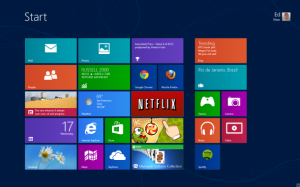Proofpoint has announced a new Proofpoint Essentials Security Awareness solution to help small and medium sized businesses (SMBs) identify top …


Proofpoint has announced a new Proofpoint Essentials Security Awareness solution to help small and medium sized businesses (SMBs) identify top …

Security professionals across the Middle East must educate employees about the rise in coronavirus-related cybercrime and how to avoid placing their organisation at risk, says Werno Gevers, cybersecurity specialist, Mimecast.

The volume of malicious and opportunistic cybercrimes has increased during the first 100 Days of the COVID-19 pandemic, according to the latest study by Mimecast.

Mimecast’s latest ESRA finds tens of thousands of impersonation attacks, malware attachments and malicious URLs being delivered to users’ inboxes.

Trend Micros’s 2018 security roundup report reveals substantial growth in phishing, cryptocurrency mining and BEC.

The UAE accounted for 2.4 million of the 1.7 billion ransomware attacks detected globally in Q1 of 2018, according to a recent report by cybersecurity solutions firm Trend Micro.

Sophos has launched the first email protection solution to offer predictive security with active threat protection (ATP), anti-phishing email authentication, and outbound scanning and policy support.

LogMeIn has announced that GoToWebinar, its webinar tool received a technical and visual overhaul, as well as a host of new features.

The TOR Project is advising that people stop using Windows after the discovery of a startling vulnerability in Firefox that undermined the main advantages of the privacy-centered network.

Malware modifies localised versions of social networks, banks and e-commerce sites when accessed from infected computers.
GET TAHAWULTECH.COM IN YOUR INBOX